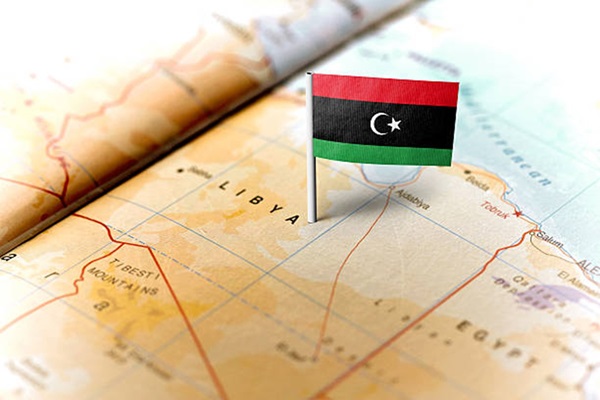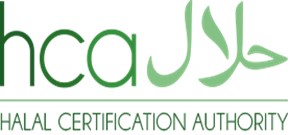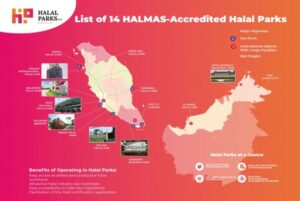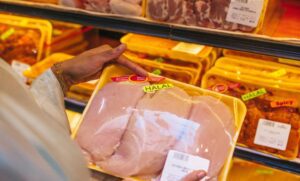
Malaysia Aid Libya In Transforming To Global Halal Economy Powerhouse
Introduction
Malaysia is widely recognized as a global leader in the halal industry, with well-established certification standards, a robust halal ecosystem, and significant expertise in manufacturing and marketing halal products. Libya is poised on the brink of a transformative journey aimed at establishing itself as a global powerhouse in the halal economy. It seeks to leverage the country’s strategic geographical position and deep-rooted Islamic heritage to tap into the rapidly expanding global halal market. To guide this transformation, Libya has appointed a leading Malaysian advisory team in Islamic finance, whose extensive experience and insights are crucial in shaping and executing this visionary initiative. Under the advisory team guidance of seasoned professionals in Islamic finance, this initiative involves comprehensive planning and collaboration with Malaysian industry leaders, renowned for their expertise in halal certification and production.
Libya can benefit immensely from fostering a strong relationship with Malaysia to develop its own halal hub. Capacity building is a key focus, with training programs and educational exchanges designed to equip Libyan professionals with the necessary skills and knowledge. Engaging Malaysian experts, who have extensive experience and expertise in the halal industry, can greatly enhance Libya’s capabilities. By strategically fostering a relationship with Malaysia, Libya can leverage Malaysia’s extensive experience and leadership in the halal industry. This partnership can accelerate the development of a halal hub in Libya, promoting economic diversification and positioning Libya as a competitive player in the global halal market.
Infrastructure & Framework
Setting up a halal hub involves creating an infrastructure that ensures compliance with Islamic dietary laws and standards, as well as facilitating the production, certification, distribution, and promotion of halal products and services. One of the infrastructures needed for establishing a halal hub is by establishing a halal certification body or work closely with existing one to certify products and services as halal. This authority ensures that all products meet Islamic dietary laws and standards.
Halal Certification Authority & Standards
Establishing a Halal Certification Authority in Libya would be a significant step in ensuring the compliance of products and services with Islamic dietary laws and standards. Setting up such an authority is critical because it requires establishing a legal framework that defines the authority’s mandate, responsibilities, and operational guidelines and it shall outline the authority’s powers, organizational structure, funding mechanisms, and relationship with relevant government agencies.
Learning from Malaysian experience, by setting up the Halal Certification Authority as a government agency or a public-private partnership and by appointing qualified professionals with expertise in Islamic jurisprudence, food science, quality assurance, and certification processes to oversee the authority’s operations can play a pivotal role in ensuring consumer confidence. In addition, the initiative to develop comprehensive halal standards that cover all aspects of production, processing, packaging, and labelling of halal products and services is also required. Consultations with Libyan Islamic scholars, local and international industries experts, and stakeholders will ensure the standards reflect Islamic principles and are aligned with international best practices.

Halal Industrial Park
Leveraging its strategic geographical position and rich Islamic heritage, Libya aims to tap into the burgeoning global halal market by establishing dedicated halal industrial parks and zones. These parks shall provide infrastructure, utilities, and services tailored to the needs of halal businesses. Creating halal industrial parks requires a supportive ecosystem and enablers to facilitate the establishment and growth of businesses focused on halal production and services. The zones can serve as specialized hubs for halal production, certification, and distribution, attracting both local and international investments.
Governments can provide incentives, tax breaks, and supportive policies to encourage the development of halal industrial parks. Further, the idea of establishing research and innovation centres focused on halal products and processes within or adjacent to the industrial park is most recommendable. These centres can support businesses with product development, quality control, and compliance with halal standards, fostering innovation and competitiveness. Efficient logistics and distribution networks shall be created to ensure the timely and safe delivery of halal products to local and international markets. Currently, Halal Malaysia Industrial park is the largest hub in the world, covering 14 strategic halal parks which have received Halal Malaysia status (HALMAS) from the Halal Development Corporation (HDC).

Marketing and Promotion
Development of serious marketing strategies is essential to promote halal products and services locally and internationally. Officers in charge for halal hub must participate in trade fairs, exhibitions, and industry events to learn and showcase the quality and authenticity of halal products. Marketing and promotion are crucial for maximizing the visibility, credibility, and competitiveness of a halal hub. Constructive marketing and promotion can make the halal hub effectively raise awareness, attract stakeholders, and establish itself as a leading hub for halal products and services, both regionally and globally.

Economic Benefits
The development of a halal hub in Libya promises several economic benefits. It can stimulate local industries, create employment opportunities, and attract foreign investment. By adhering to strict halal standards, Libya can assure quality and authenticity, thereby gaining the trust of Muslim consumers globally. Moreover, this initiative can pave the way for Libya to diversify its economy, traditionally reliant on oil exports, by venturing into the finance, food & beverages, pharmaceuticals, cosmetics, and tourism sectors, all under the halal banner. Through these efforts, Libya aspires to diversify its economy, generate employment opportunities, and establish itself as a trusted source of high-quality halal products. This strategic move not only enhances Libya’s economic resilience but also positions the country as a leader in the global halal industry, driving sustainable growth and prosperity.

Dr Razli Ramli has over 30 years of experience in banking and finance and his proficiency lies in the transformation of traditional banking and financial operations into Shariah-compliant operations. He is one of the Shariah committee members of BSN and Hong Leong Islamic Bank and sits as an independent and non-executive director of the board in Wasiyyah Family Office Sdn. Bhd. For more information about his research and publications, visit: https://business.utm.my/razli-intro/

